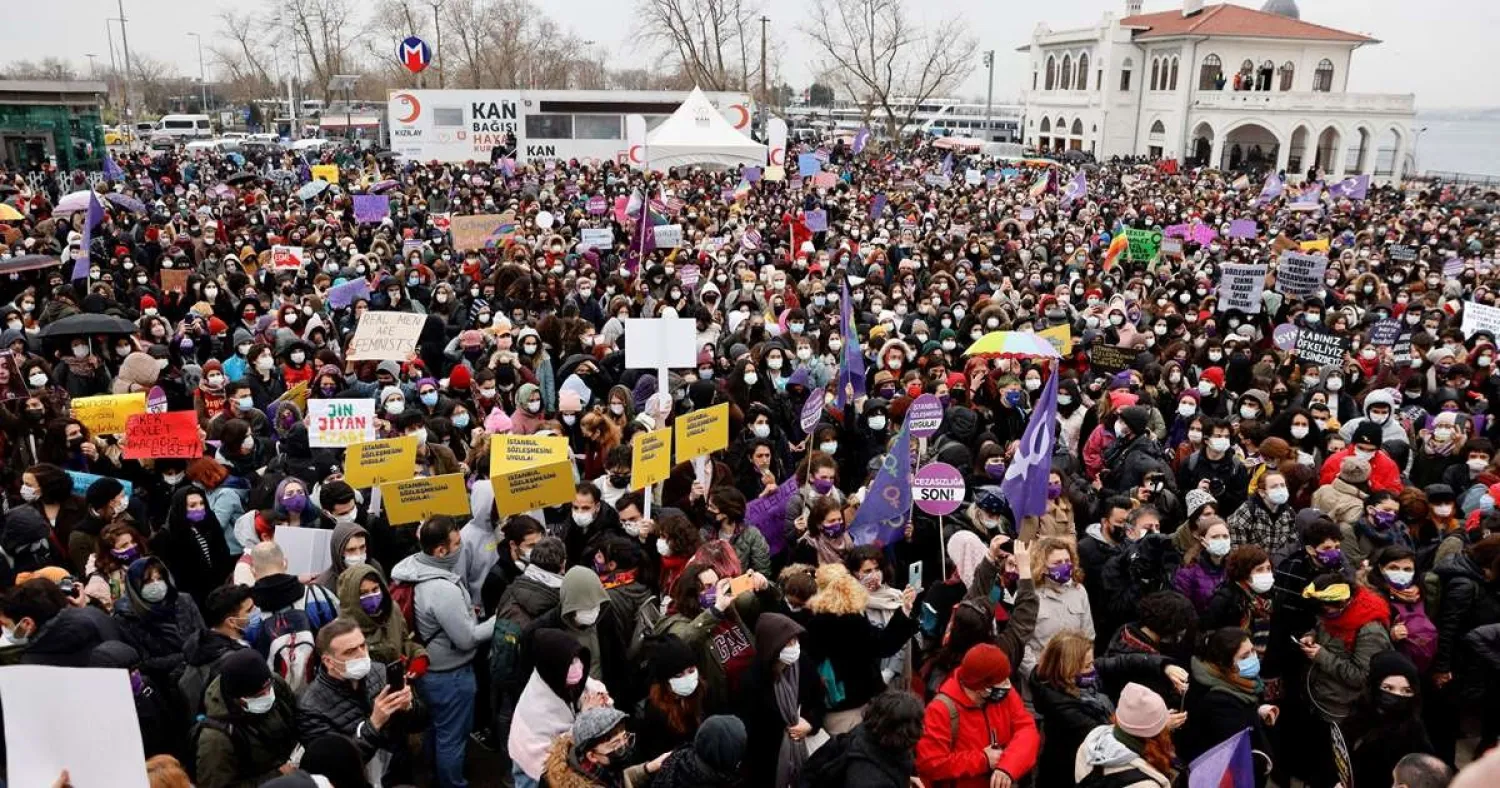Turkey has sought to justify its withdrawal from the Council of Europe Convention on Preventing and Combating Violence against Women and Domestic Violence, better known as the Istanbul Convention, after a wave of criticism mainly by the United States and the European Union.
In a statement, the Turkish Foreign Affairs ministry said that its decision to withdraw from the treaty “should not be interpreted as compromising on combating violence against women.”
“The Council of Europe Convention on Preventing and Combating Violence against Women and Domestic Violence is a convention prepared with the main purpose of combating violence against women… However, elements of the convention and various practices created sensitivity in the public and caused criticism,” the statement added.
The ministry stressed that Turkey’s “laws guarantee the highest possible standard of women's rights”, adding that the country would maintain its zero-tolerance policy against domestic violence.
The treaty, which was signed by the European Union on June 13, 2917, entered into force in 34 countries, including Turkey. But it was not implemented in Ukraine, Britain, the Czech Republic, Slovakia, Moldova, Lithuania, Liechtenstein, Latvia, Hungary, Armenia and Bulgaria, while Russia and Azerbaijan - the two members of the Council of Europe - refused to sign the agreement.
Some articles in the Istanbul Convention have sparked debate about gender equality and the harm it would cause to traditional family values in Turkey.
The Turkish justifications came after the European Union strongly criticized Turkey’s move, while US President Joe Biden said he was “deeply disappointed” with Ankara.
Women’s organizations in Turkey said that they would continue their protests against President Recep Tayyip Erdogan’s decision.
The former president of the Union of Turkish Judges, Omer Faruk Eminagaoglu, announced that a lawsuit has been filed in the Turkish State Council against the president’s move.









